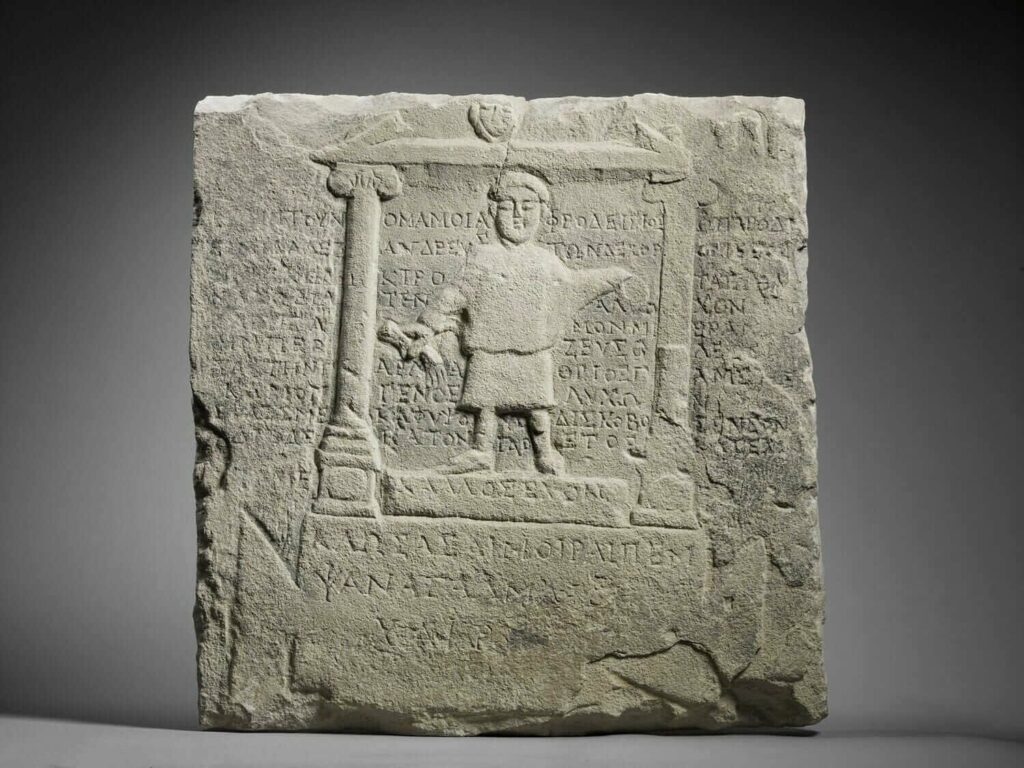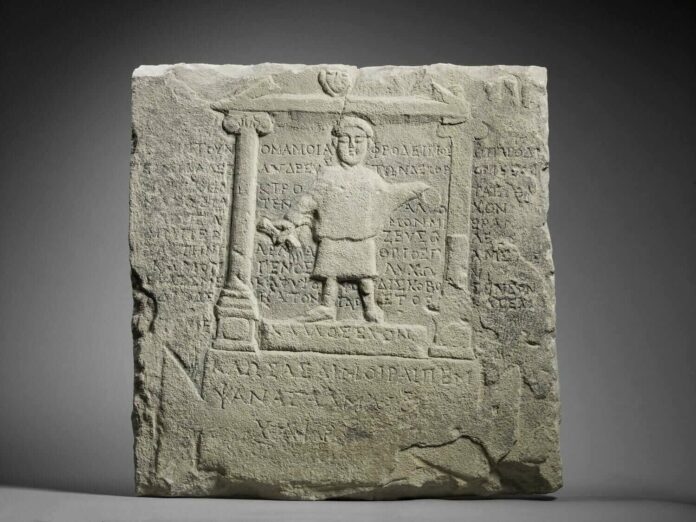A Betrayal Beyond the Grave

Epitaphs, those solemn inscriptions etched on tombstones, have long been a means to honor the departed. However, in a rare and scandalous instance, the epitaph of Aphrodisios of Alexandria Troas stands as a harrowing account of betrayal, passion, and murder, now immortalized in the halls of the Louvre.
The Fateful Words that Shock

The tombstone’s inscription reads like a dramatic tale straight from the annals of ancient Greek tragedy:
“Passer-by, Aphrodisios is my name; I’m a citizen of Alexandria Troas and a leader of the chorus. I die a most pathetic death because of my wife, the dirty adulteress (whom Zeus will destroy). Her secret lover Lychon—a member of my own family!—slaughtered me, still in my youth. He threw me from the heights like a discus. I was twenty years old, so full of beauty, when the Moirai spun my fate and sent me as a delight to Hades.”
A Life Cut Short by Treachery
Aphrodisios, a young man of prominence in the bustling city of Alexandria Troas, met an untimely and violent end at the hands of his wife’s lover, who was shockingly revealed to be a member of his own family. The epitaph paints a vivid picture of the betrayal, with Lychon, the adulterer, casting Aphrodisios from a great height “like a discus.”
The Cursed Adulteress and the Wrath of Zeus
In a dramatic flourish, the epitaph calls upon the wrath of Zeus to strike down Aphrodisios’ “dirty adulteress” wife, whose infidelity set in motion the tragic chain of events. The invocation of the Moirai, the Fates of Greek mythology, adds an air of inevitability to the young man’s untimely demise, sending him as a “delight to Hades” at the tender age of twenty.
A Lasting Legacy of Shame

What sets this epitaph apart from the solemn tributes of old is its raw and unfiltered portrayal of personal misfortune. Rather than preserving the dignity of the deceased, it lays bare the most intimate and scandalous details of Aphrodisios’ life for all to witness.
In an era where public displays of personal grievances were rare, this tombstone stands as a testament to the ancient Greeks’ capacity for embarrassment and their willingness to immortalize even the most shameful of tales. For Aphrodisios, his epitaph ensures that his tragic story of betrayal and murder will be remembered for generations to come, a lasting, albeit mortifying, legacy.

